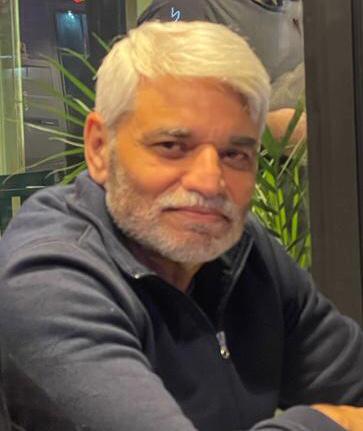Written by
Maj Gen(r) Muhammad Khalil Dar

In soldiering gallantry is above the common bravery. It is distinguished by the display of personal courage and commitment at such levels where most would follow the standard practices. Keeping one’s ground in the face of overwhelming enemy, not willing to leave the fellow injured comrades under threat to own life, returning to retrieve the military equipment as an act of recovering the pride are the actions which have been recognized regardless of any military in the world. Every Army adopts them as role models and nations revere them as symbols of their national pride.
Right from the initial stages when our Army was being shaped and organized on modern lines i.e by the dawn of 20th Century the foundations were laid down by the acts of valor of soldiers like subedar Khudadad Khan, Naik Shahmad Khan and Jamedar M Khan Afridi. Though, total of 11 Indian soldiers earned Victoria Crosses, these three joined Pakistan Army after 1947 Independence. On the fateful day of 31 Oct 1914, Sepoy Khudadad Khan made history by becoming the first Indian soldier to be awarded Victoria Cross. He belonged to 129th Baluchis (Duke of Connaught’s Own Baluchis), (now 11 Baloch), which had been shipped to Western Front from India as part of a large expeditionary force. He kept a steady fire despite being left alone and caused enough delay to the advancing Germans. He was left for dead by the enemy but despite his wounds, he managed to crawl back to his regiment during the night. His grace full statue at the entrance of Army Museum Rawalpindi stands tall to welcome the visitors and reminding them sons of this soil are not less than anyone in the world when it comes to valor.
While Sepoy Khadadad Khan VC distinguished himself in the first Battle of Yepres, Jamedar Mir Dast VC made his mark in the 2nd Battle of Ypres. He upped the ante in proving that he was able to handle the grave situation in the absence of officers. He was born in 1874 in Maidan – Tirah Valley and enlisted in 55th Coke’s Rifles (7th Battalion Frontier Force Regiment) in 1894 and promoted to Jamedar in 1909. He was seconded to the 57th Wilde’s Rifles (9th Battalion Frontier Force regiment) as part of Lahore Division shipped to the Western front. On 26th April 1915 Germans released deadly chlorine gas into a favourable wind. All British officers of the 57th became casualties of the chlorine gas. Mir Dast was one of a small group of soldiers who held their ground until nightfall. He kept his nerves despite being wounded, gathered together parties under his command and recovered eight wounded British and Indian comrades to safety. He was wounded for the second time while doing so.
Almost matching the valor of Sepoy Khudadad Khan another son of the soil Naik Shahamad Khan kept his machine-gun firing single-handedly for three hours, beating back three enemy counter-attacks. By the time he was ordered to withdraw all of his section comrades had been killed or wounded. This bravest of the brave soul not only severely wounded man but his machine gun and ammunition. Recorded history testifies that he only left two shovels behind. Such was the sense of pride that he was willing to risk his life but not leave any part of his pride behind. This great act of valor happened on 12/13 April 1916 in the Battle of at Beit Aveesa on the Tigris Front in Mesopotamia (now Iraq). Hailing from Rawat near Rawalpindi, Shahamad Khan belonged to 89th Punjabis which served in all the major theatres of the World War 1.
Ours Army which is founded on the glorious traditions of valor is far from a revolutionary Army or who put loyalty to an idea or a person who is not in the direct chain of command. That’s how the regular armies work and that’s what was testified by our role models like Subedar Khudadad Khan, Naik Shahmad Khan and Jamedar Mard Khan Afridi. All acts of valor are the ones which are undertaken within the defined limits of a particular command by a superior commander. That’s the beauty of the Army.
When it comes to pure soldiering under the regular army structure it is nothing more than the acts of commitment and display of loyalty to the very organization to which you belong. Soldiers’ valor is universal and is recognized as such. At the end I would quote the famous words of Kemal Ataturk of 1934 while paying tribute to the Allied soldiers killed at Gallipoli:
“Those heroes that shed their blood and lost their lives… You are now lying in the soil of a friendly country. Therefore, rest in peace. There is no difference between the Johnnies and the Mehmets to us where they lie side by side now here in this country of ours… you, the mothers, who sent their sons from faraway countries wipe away your tears; your sons are now lying in our bosom and are in peace. After having lost their lives on this land they have become our sons as well.”


